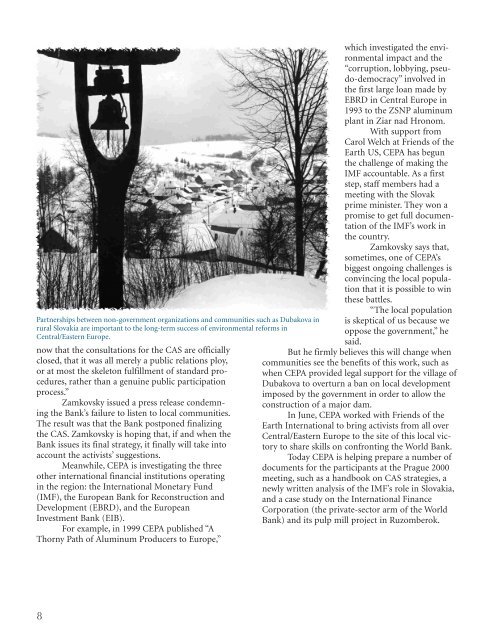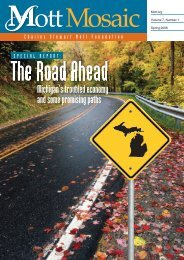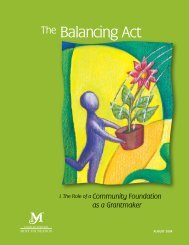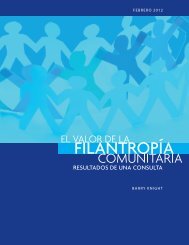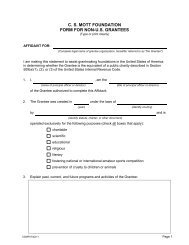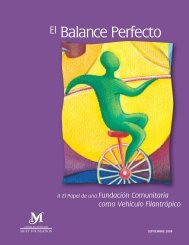mottnow August 2000 - Charles Stewart Mott Foundation
mottnow August 2000 - Charles Stewart Mott Foundation
mottnow August 2000 - Charles Stewart Mott Foundation
- No tags were found...
Create successful ePaper yourself
Turn your PDF publications into a flip-book with our unique Google optimized e-Paper software.
Partnerships between non-government organizations and communities such as Dubakova inrural Slovakia are important to the long-term success of environmental reforms inCentral/Eastern Europe.now that the consultations for the CAS are officiallyclosed, that it was all merely a public relations ploy,or at most the skeleton fulfillment of standard procedures,rather than a genuine public participationprocess.”Zamkovsky issued a press release condemningthe Bank’s failure to listen to local communities.The result was that the Bank postponed finalizingthe CAS. Zamkovsky is hoping that, if and when theBank issues its final strategy, it finally will take intoaccount the activists’ suggestions.Meanwhile, CEPA is investigating the threeother international financial institutions operatingin the region: the International Monetary Fund(IMF), the European Bank for Reconstruction andDevelopment (EBRD), and the EuropeanInvestment Bank (EIB).For example, in 1999 CEPA published “AThorny Path of Aluminum Producers to Europe,”which investigated the environmentalimpact and the“corruption, lobbying, pseudo-democracy”involved inthe first large loan made byEBRD in Central Europe in1993 to the ZSNP aluminumplant in Ziar nad Hronom.With support fromCarol Welch at Friends of theEarth US, CEPA has begunthe challenge of making theIMF accountable. As a firststep, staff members had ameeting with the Slovakprime minister. They won apromise to get full documentationof the IMF’s work inthe country.Zamkovsky says that,sometimes, one of CEPA’sbiggest ongoing challenges isconvincing the local populationthat it is possible to winthese battles.“The local populationis skeptical of us because weoppose the government,” hesaid.But he firmly believes this will change whencommunities see the benefits of this work, such aswhen CEPA provided legal support for the village ofDubakova to overturn a ban on local developmentimposed by the government in order to allow theconstruction of a major dam.In June, CEPA worked with Friends of theEarth International to bring activists from all overCentral/Eastern Europe to the site of this local victoryto share skills on confronting the World Bank.Today CEPA is helping prepare a number ofdocuments for the participants at the Prague <strong>2000</strong>meeting, such as a handbook on CAS strategies, anewly written analysis of the IMF’s role in Slovakia,and a case study on the International FinanceCorporation (the private-sector arm of the WorldBank) and its pulp mill project in Ruzomberok.8


